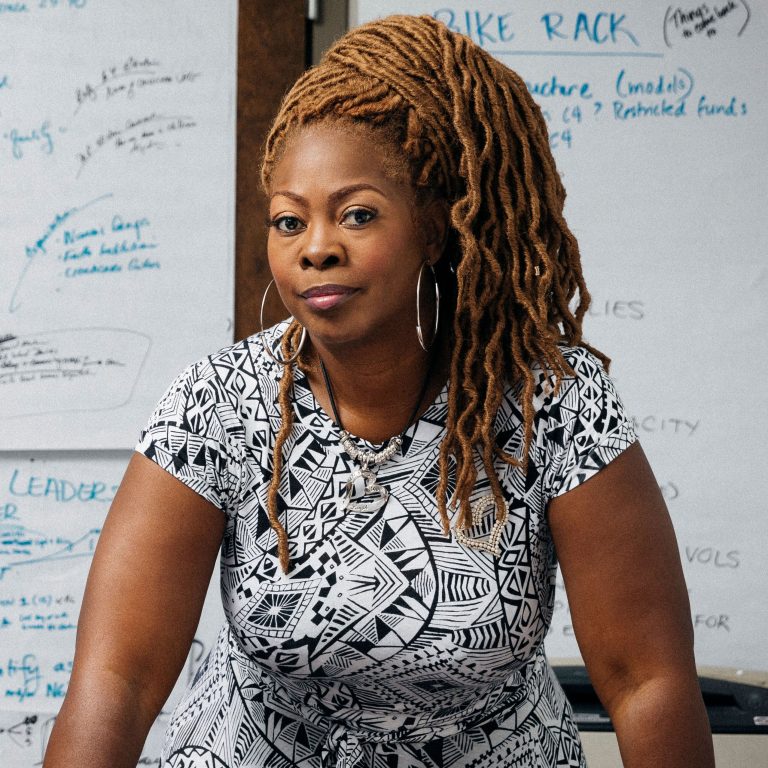By LaTosha Brown
Muhammad Ali’s famous “rope-a-dope” strategy — allowing his opponent to exhaust themselves while conserving energy, then striking with precision when they were depleted — wasn’t surrender but calculated patience. Today, Black America is employing its version of a rope-a-dope in response to the current political climate. Black people are resolved in this moment. While many in America seem shocked by what this administration is doing, we have always understood the fragility of democracy – how constitutional rights have been perpetually framed to us as rewards rather than rights.
We’ve grown familiar with watching higher courts strip away civil rights protections. Though today’s assault is more aggressive, we’ve experienced aspects of this rollback of rights in each generation.
The misconception that Black communities are inactive fundamentally misunderstands our sophisticated resistance strategies. Protesting must be strategic. Timing, context, and preparation matter. From Montgomery’s carpool systems to Selma’s tactical planning, preparation has always been the foundation of sustainable resistance. Protest is only one tool in our resistance fight.
When we are under attack, we must use every form of power we have — economic, electoral, political, communicative, and protest — to build our resistance movement in ways that can neither be ignored nor defeated. Right now, we are doing work that centers our needs. We are moving with purpose, organizing internally, and fortifying our communities.

Black people aren’t inactive; we are being strategic. We understand when to speak when to act, and when withdrawal itself becomes power.
Make no mistake: Resistance is happening across multiple fronts. The Target boycott, led by Dr. Jamal Bryant, has demonstrated our collective economic power with a 43% drop in quarterly profits. Our $1.4 trillion in spending power represents a formidable force when strategically directed. Black legal organizations are filing strategic lawsuits challenging voter suppression. Media platforms like the Black Star Network, Black Press USA, “Contraband Camp,” and “Native Land Pod” are taking messages directly to Black audiences. The Black church, historically a cornerstone of resistance movements, continues to serve as both a sanctuary and a strategic headquarters for movement-building. We are organizing rallies across the country through the State of the People Tour, using every tool at our disposal, including becoming ungovernable — but we determine the timeline.
We continue to protest on our terms, in ways that feed and inspire our communities.
This is a moment where Black people expect white people who claim to want to save this country to do exactly that. Many of us have been on that mission for years; we have now turned our attention to saving ourselves.
Like the fictional character in Black Panther, who transformed blows into power, we are taking the betrayal of America and the capitulation of our allies as a vehicle that affirms a truth we’ve always known: Ain’t nobody coming to save us. We will save ourselves. But there will come a time when we will pour into the streets in protest. We will not allow this regime to come for us while we sit dormant or paralyzed by fear. That is not our legacy. In this moment that feels quiet, we are taking careful note of those throwing us under the bus. They will all have to come Black around. Like Ali against the ropes, we’re fighting back strategically. We’re actively studying patterns, identifying vulnerabilities, and preparing for our moment to strike. The appearance of disadvantages is part of the strategy itself.
The absence of visible protest isn’t surrender; it’s the disciplined patience of a community that has outlasted every attempt to destroy it. Sometimes, the most powerful resistance happens beyond the spotlight, where tomorrow’s decisive action is being methodically prepared today.
Black people will survive. Our existence predates America, predates colonization, predates the very concept of whiteness itself. Black women are the original mothers of humanity. We have weathered the Middle Passage, survived slavery, outsmarted Jim Crow, endured mass incarceration, and continued to thrive despite systems designed for our destruction. Our survival has never been accidental – it has always been forged through strategic organizing and the fierce determination to build our power. We don’t just endure; we transform our pain into purpose and our resistance into renaissance.
Black people will survive. But will America? That is the real question that hangs in the balance. Our opponents mistake our strategic patience for weakness — exactly as Ali’s opponents once did. And like them, they’ll discover their error only when it’s too late. Because we are the writers of our own story. And we’re not done yet. Many of us are focusing on the nation that exists beyond the white gaze, beyond the nation state, to a Black nation — a nation of people who throughout history have proven that when we work together, we win.
LaTosha Brown is the co-founder of Black Voters Matter, which is dedicated to expanding Black voter engagement and increasing progressive power through grassroots movement-building.




